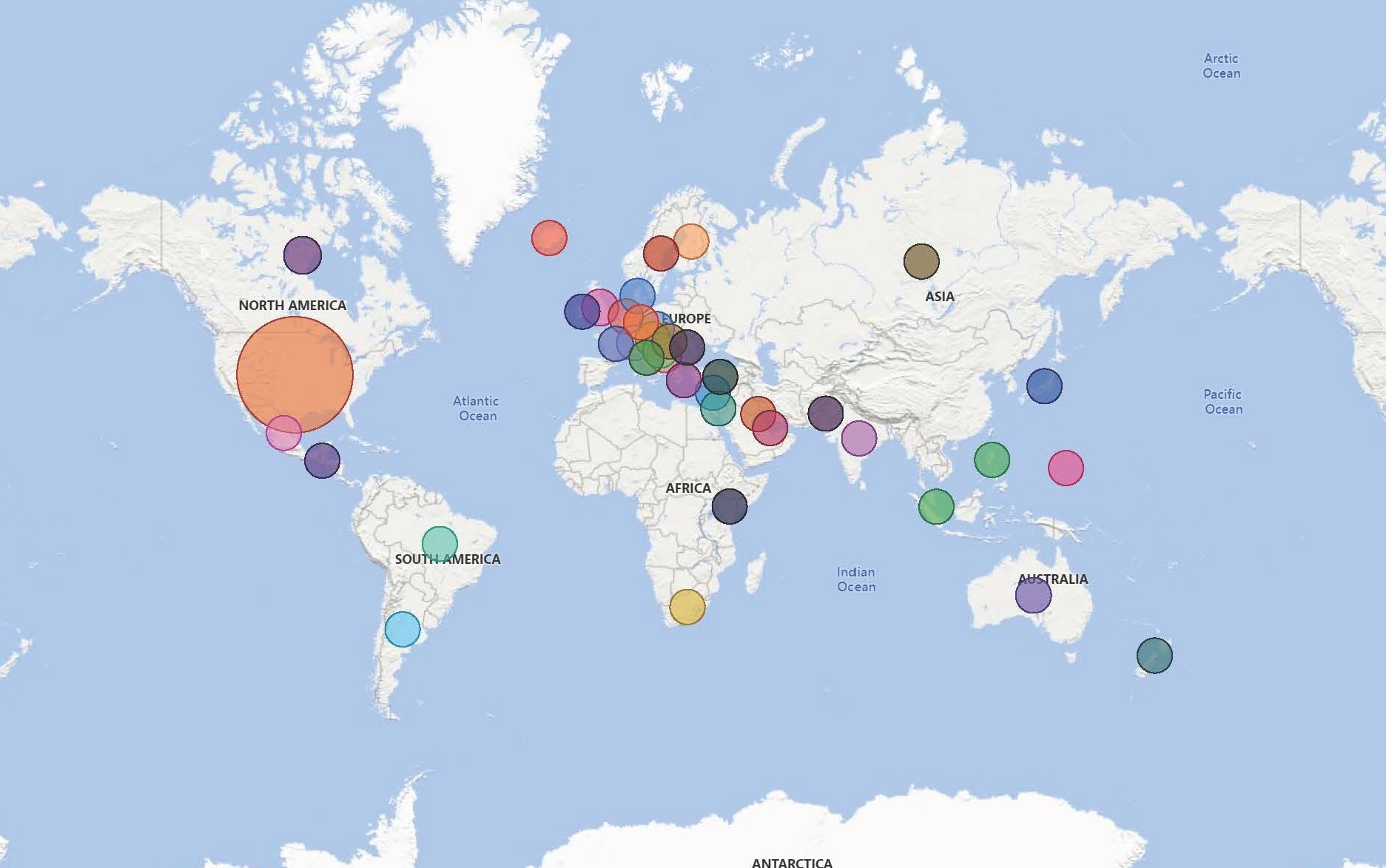Pregnancy after kidney transplantation
Theresa A Daly1, Lisa Coscia1, Dorothy Kliniewski1, Richard D Hasz2, Howard M. Nathan1, Serban Constantinescu1,3, Michael J Moritz1.
1Transplant Pregnancy Registry International, Gift of Life Institute, Philadelphia, PA, United States; 2Gift of Life Donor Program, Philadelphia, PA, United States; 3Lewis Katz School of Medicine, Temple University, Philadelphia, PA, United States
Background: The Transplantation Pregnancy Registry International (TPRI) has been collecting pregnancy data for over 32 years in all solid organ transplant recipients.
Methods: Data are collected via questionnaires, interviews, online surveys, and review of medical records; retrospective and prospective pregnancy reports are accepted, and recipients worldwide can participate. The figure shows the countries that are represented in the TPRI.
Results: The kidney cohort is the largest and comprises 1,367 female recipients reporting 2,455 pregnancies with 2,544 pregnancy outcomes (includes multiple births). The mean age at transplant is 24 years and the mean transplant to conception interval is 5.4 years with 70% reported as being planned. 78% of the pregnancies are exposed to a calcineurin inhibitor (cyclosporine 38% and tacrolimus 40%). Comorbid conditions during pregnancy include drug-treated hypertension 48%, insulin treated diabetes 8%, and preeclampsia 30%. Rejection during pregnancy was reported in 3% and graft loss within 2 years of delivery was 5.5%. Pregnancy outcomes include ectopic 1%, stillbirth 2%, terminations 4%, miscarriages 19% and live births 75%. The mean gestational age of the 1892 live births is 35.8 and mean birthweight is 2551 g; 41% of the infants are born late preterm (>32-<37 weeks). Cesarean delivery occurred in 51% and 4.8% of infants had a birth defect reported. At last maternal follow-up with a mean of 14.4 years, kidney function was reported as adequate in 67% of the recipients and there were 20% maternal deaths.
Conclusions: It is possible for kidney transplant to have a pregnancy and deliver a healthy baby. The majority of recipients report a live birth. Incidences of hypertension and preeclampsia remain high compared to the general population contributing to the higher rates of prematurity and low-birthweight. It is important to have a planned pregnancy to optimize kidney function and avoid medications that are harmful to the fetus. The TPRI is a resource for the worldwide transplant community. Healthcare providers who counsel transplant recipients about parenthood and transplant recipients themselves are encouraged to contact the TPRI.